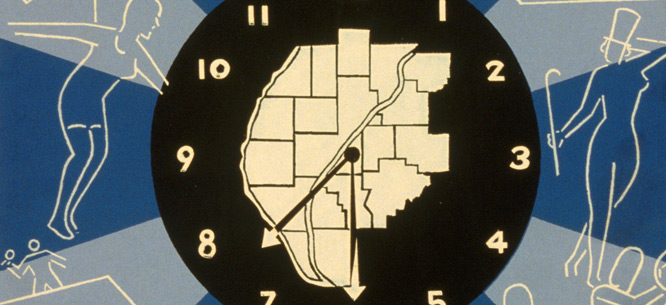More Future, Less Work
More Future, Less Work
A universal basic income suggests a new vision of environmental justice.

I want to make the case for why basic income is an important part of an environmentally sustainable society, focusing on four main points.
One of the most useful things about a basic income is that it gives workers more power and leverage. This has particularly important implications for connecting environmental justice struggles to the labor movement: a basic income gives workers more power to say no to industries that are damaging the environment, their health, and the health of their communities. The communities most impacted by environmental injustice tend to be communities of color and working-class communities. People in these communities, working these jobs, are usually the first to know about the harmful effects of the industries they rely on for their livelihoods. Yet they often feel they don’t have any choice but to keep working in those industries. A basic income could be one piece in a puzzle of offering alternatives.
The second benefit of a basic income in environmental terms is the challenge it presents to the implied link between production and consumption: if you have a job where you produce and make money, you can then consume and have the things that you need to live, and you need to consume enough to keep the economy booming so that there are enough jobs to go around. Meanwhile there’s a tendency in environmentalism to talk a lot about overconsumption and how we need to cut back, which can easily tip into the language of austerity. I think that’s very dangerous to any sort of environmentally just vision. Whatever problems there may be with current consumption patterns, we shouldn’t point the finger at everyday people for wanting to lead comfortable lives. If we really want to challenge overconsumption, we need to look at it within that vicious cycle of production and consumption: the conventional economic wisdom imposes a kind of consumption blackmail, where we’re told that if you don’t consume enough, you’re putting people out of work. Let’s start by challenging that.
There are good reasons that a lot of environmentalists are nervous about adopting a demand that could be seen as anti-work. Too many past environmental campaigns were about demonizing workers, and polluting industries have often seized on the narratives of jobs versus tree-huggers to oppose regulations that are actually pretty straightforward. They’ll say, “We can’t put a filter on that smokestack because it’ll kill all the jobs and no one will be employed.” So I think it’s important to push back against that kind of exaggeration. But I also think that maybe it’s time to reclaim a kind of job-killing environmentalism—one that’s not against work or workers, but against creating jobs just for their own sake.
To be clear, there is still a lot of work that needs to be done if we’re going to achieve a society that’s both more just and more sustainable. I think this is one of many places where a basic income can connect to a job guarantee: we certainly need publicly funded work to build green infrastructure, for example, as the conversation around green jobs has pointed out.
Green jobs rhetoric tends to mean the likes of installing solar panels, insulating houses, and building rail lines. But an ecologically sustainable society is one that will rely on other kinds of work—in particular kinds of labor that aren’t inherently resource-intensive, things like reproductive labor, care work, and education. I would also include something that we might call care work for ecosystems, encompassing the kinds of labor that are necessary for sustaining life on this planet. Much of this work is already waged, if often underpaid: care work for the ill and elderly, in particular, is a growing area of employment. But a lot of the work of reproducing society is unrecognized and unpaid. And basic income is a way to support the many kinds of labor that go into social reproduction without just making every social interaction into a job and a set of tasks.
But another equally important part of the transition to an ecologically sustainable and just society is to move toward working less. There are several studies that suggest that working less is beneficial to people’s well-being: people like to choose more leisure when they actually have an option—as opposed to the current reality, which is that more leisure time usually means that you are un- or underemployed. Working less also tends to decrease energy use and ecological footprints, as scholars like Juliet Schor have shown.
Related to this point is my third one. Basic income suggests a new vision of the good life to which we can aspire: one that’s sustainable but not austere, where we work less and have more time to do the other things that make life worthwhile. The underlying question here is: how can we build a world that is less resource intensive but more enjoyable in other ways? And low-carbon leisure is part of the answer. There’s a famous paper about basic income titled “Why Surfers Should Be Fed.” The argument is that even surfers—people who aren’t seen as contributing to society—should receive a basic level of support to pursue their own ends. But maybe it’s not just that we should feed surfers, but that more of us should be surfers. It’d certainly be better for the environment than, say, being a supervisor at Exxon—not all productive activity is beneficial.
Finally, on a more pragmatic level, the basic income offers some exciting political possibilities.
It’s often noted that the basic income appeals to people of different ideological persuasions. This has its dangers: libertarians, for example, have pushed the basic income as a way to cut all other social services. A left version of basic income can’t mean that we’re going to cut Medicaid, housing subsidies, and all the rest and simply say, “Here’s your check, now pay for whatever you can get on the free market.” So it’s important to navigate these pitfalls. But we shouldn’t allow those concerns to obscure the larger political promise of this project.
Basic income has the potential to bring together a wide left coalition comprised of employed people, unemployed people, and underemployed people. It has the power to challenge the stigma associated with being unemployed. Basic income also has lots of appeal internationally: more and more experiments are popping up around the world, from Finland to Namibia. In fact, it’s particularly potent not in wealthy industrialized countries, but in parts of the global South where unemployment rates are very high and the prospect of creating jobs for everyone appears wildly unrealistic. So basic income offers exciting political opportunities for thinking not only beyond work but across borders.
Alyssa Battistoni is an editor at Jacobin.
This article was adapted from a talk given by the author at Grasping At the Root. It appears in Dissent as part of a roundtable convened for New Economy Week 2015: From Austerity to Prosperity, a week of online and in-person events being convened by the New Economy Coalition from November 9-15.




